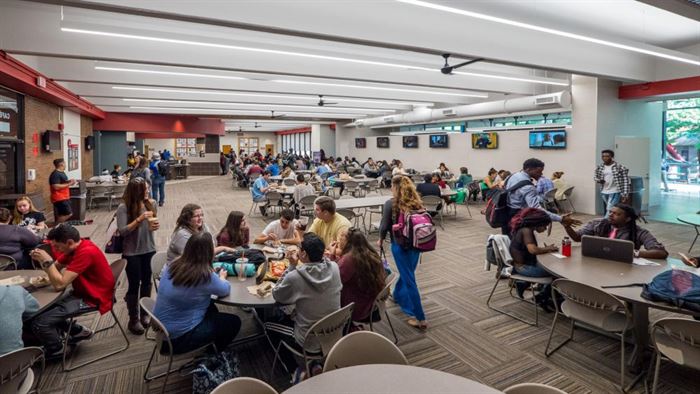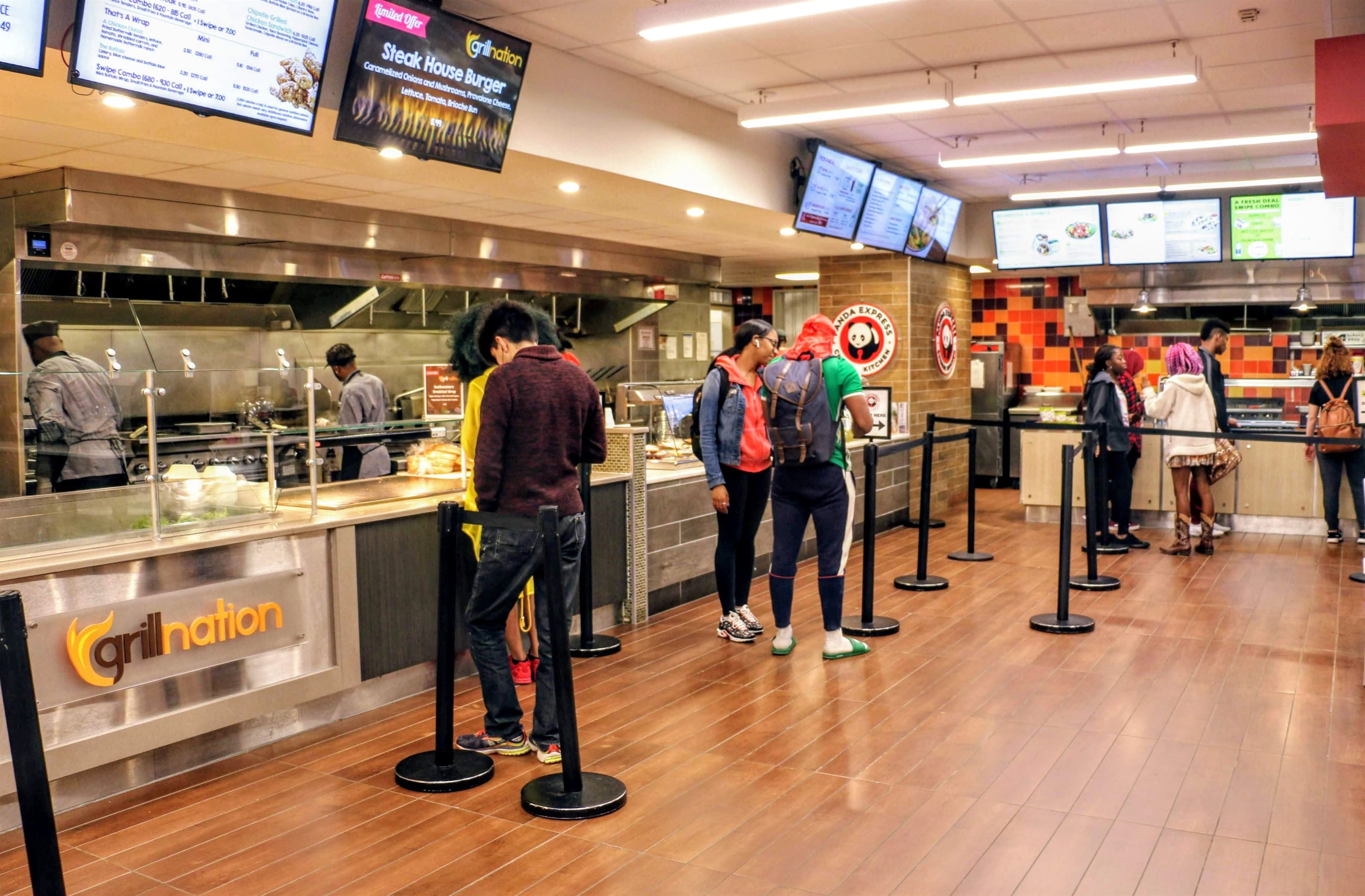There are various ways in which students are capable of staying healthy and fit on campus. When students eat a lot of junk food, either at home or at fast food restaurants, it could cause their bodies to function improperly and lead to various diseases.
Junior nutrition major Ciera Crespo encourages students who live on campus to always look for ways to sneak fruits and vegetables into their diet, many of which are rich in fiber and vitamins.
“Fiber is insanely important for the gut. Choose to swap rice for broccoli at Panda Express and swap out soda for water or diluted juices,” Crespo said. “Students need to be cautious about sugar and salt intake to lower their risk of disease later in their life.”
Long-term bad habits of taking in too much sugar could cause diabetes and taking large doses of salt can cause heart problems. Maintaining an unhealthy diet could also cause heart disease, which was the leading cause of death around the world in 2016, according to the World Health Organization.

Students share meals with their friends in the Student Center Cafeteria. Photo courtesy of Montclair State University
Exercise is also very important for students. In order to keep the heart healthy, one should do cardio at least 20 to 30 minutes a day. Strength training, such as weight lifting and push-ups, keeps the muscles healthy.
“Go to the gym, start small and don’t be intimidated by the other students there,” Crespo said. “Commit to making your health what it should be, and commit to being your best self no matter what that is.”
Sophomore computer science major Damien Bahoumda likes eating teriyaki chicken and fried rice at Panda Express almost every day. He also likes salads from Sam’s place. He explained that he compensates for his diet through exercise.
“I go to the gym four days a week and do weight lighting and strength training,” Bahoumda said.
However, Dr. Ashkan Afshin, a lead researcher at University of Washington in Seattle, notes that poor nutrition helps drive many health conditions from high blood pressure to Type 2 diabetes. There could be a risk of higher death rates due to foods that are high in sodium.
“Taking out refined carbohydrates from your diet is the best way to lose weight,” Crespo said. “You could also stop eating bread and products with refined flour.”
Crespo also explained how caloric intake varies from person to person.
“Always listen to your tummy. Students who work out more often will eat more than students that are aren’t as active, and that’s okay,” Crespo said. “Your body will adjust when you adjust your habits, and you feel hungrier when you work out more and that’s normal.”

Portia Calo and Sebastian Solano are served lunch at Sam’s Place. Photo courtesy of Montclair State University
Junior computer science major Jillian Vana does not maintain a healthy diet, which occasionally causes her stomach upset.
“I prefer carbohydrates everyday, but I don’t eat fast food often because I get sick,” Vana said.
Vana still tries her best to make good decisions on campus.
“I eat vegetables once a day. Twice a day, I do a fair amount of cardio, and I do the best as I can on campus,” Vana said.
Even concerning medical needs, there are no medications that are “one size fits all.” Supplements may or may not be effective because they might not actually provide nutrients and vitamins that are bioavailable or easily absorbed.
“It’s hard to imagine yourself making healthy changes, but once someone is inspired to change, it is easy to make these changes,” Crespo said. “Students could also learn more by taking a nutrition course at Montclair State University.”



